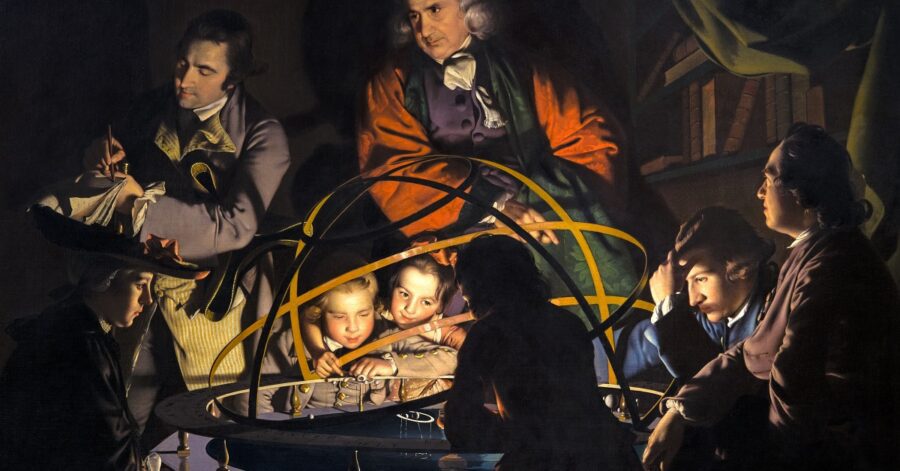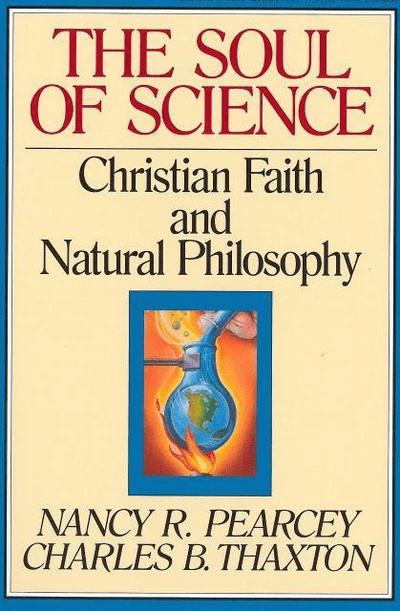Why should homeschoolers care about the philosophy of science?
Consider the following questions: What is science? What initiates developments in scientific understandings? Is science the best way to understand our world? Are science and faith compatible? Should we base governmental policy on science? These are some of the questions explored in the philosophy of science—questions that Nancy Pearcey addresses in her book, The Soul of Science. In this blog post, we’ll explore some of the major developments in the philosophy of science and why we—as homeschoolers and classical educators—should care.
The Philosophy of Science: Theoretical Frameworks
For many of us, “science” is synonymous with “facts.” If we say something is scientific, we mean it is based on facts, laws, or proven theories—or at the very least that the subject is being studied using the accepted methods of good science. Yet, we are all familiar with the notion of facts being open to interpretation. Frequently, the same facts are used to assert different conclusions, often depending on the predispositions of the scientists. Sometimes the accepted tenets of science change even without new facts coming to light. How is this possible?
How can ideas, beliefs, and scientific positions change without the introduction of new information?
In her book, The Soul of Science, Nancy Pearcey asserts that advancement in science usually comes through a new “theoretical framework,” a new way of thinking, not the discovery of new facts (59). This assertion makes sense given that scientists have never worked and explored in a vacuum. Scientific thought and scientific discovery has always occurred within a culture, under a government, in a specific time and place, and in tandem with theological thoughts, philosophical thoughts, and even literary thoughts. People, including scientists, are continually finding new ways to think about old ideas.
In fact, Pearcey contends that in order to understand scientific development, one must study the shifts in worldview that have accompanied changes in scientific ideas.
Most of us were not classically educated so we were not taught science in this manner; our schools did not integrate the studies of science, history, philosophy, or theology. However, we can readily admit that context brings greater understanding; when I know “what else” was going on at a given time, I have a better grasp of my isolated point. When I study the worldviews predominant throughout history, I can more readily understand how ideas and theories were developed and how they came to be accepted as fact. When tracing the development of science, it is helpful to consider the three main categories of thought that have fueled explorations from the early centuries until today.
Three Philosophies of Science: The Aristotelian, the Neo-Platonic, and the Mechanistic
These three dominant worldviews are the Aristotelian, the Neo-Platonic, and the mechanistic. It is important to note that the early scientists interwove their biblical worldview with Greek philosophy as those ancient documents were rediscovered. Understanding this blend of Greek scholarship and Christian philosophy helps us see the progression of scientific thought. Each of these major worldviews has its roots in the beliefs of great scientists and philosophers operating within a specific time period and within a particular culture, and each has had an enduring impact on scientific thought and development.
The Aristotelian Tradition
The Aristotelian tradition came from the writings of Aristotle, a Greek philosopher and biologist. Aristotle saw the world as a “great organism,” and couched his beliefs in terms of living things. For Aristotle, every object and organism had an intrinsic purpose or goal; he called it a “form.” Central to Aristotle’s view of the world was his belief that the earth was at the center of the universe; this belief fit his idea of how things should be—the way it made the most sense. In fact, according to Aristotle, that is how we understand everything in the world—by thinking. This emphasis on the rational mind was later incorporated by the early church; God was seen as a “rational mind,” and our path to knowing Him was through logical analysis. Aristotle’s ideas influenced science for centuries, contributed to framing much of the early scientific method, and motivated much inquiry and many discoveries. Although his views received challenges when the Scientific Revolution began, his biological contributions to science were lasting. This makes sense, as these areas of exploration best fit his model of understanding: the world as a vast living organism!
The Neo-Platonic Tradition
The Neo-Platonic tradition arose after the works of Plato began to be more widely available for study. Scientists in this tradition preferred to see God as an artist who built symbols and metaphors into His creation for us to discover. Coming to knowledge and understanding of God and the world was more mystic than logical for participants in this tradition. These scientist-philosophers stressed that God should be seen as an indwelling spirit working in and through matter. For these scientists, matter was not living (like an organism), but it was also not mechanistic. Matter was passive, acted upon by a “rational world soul,” who was understood to be God.
The Mechanistic Tradition
The Scientific Revolution inspired the mechanistic tradition; the scientists in this tradition were impressed by the predictability, permanence, and regularity of the universe. For them, the most apt metaphor for the world was a machine. In this tradition, matter was entirely passive and non-living, and was acted upon by God from the outside. Interestingly enough, the early proponents of this worldview were Christians! In their minds, this view did not eliminate the need for God to create or regulate the universe; in fact, they ascribed all creative and spiritual power to God. What moved the universe in their worldview was not an inherent purpose (like Aristotle) or inherent rational force (like Neo-Platonists) but a personal God who was seen as the Great Engineer.
Why Study the Philosophy of Science?
Aside from the “nerd value” of knowing the history of science, what good is our newly-found knowledge?
I believe it helps us gain a truer, fuller sense of what science is. It certainly enables us to teach our children more accurately, and I believe it positions us to dialogue more effectively with others. This study allows us to have a context for understanding how and why scientific thought developed as it did. Exploring the philosophy of science gives us an understanding of the deep connections between theology, culture, and science. Additionally, it equips us to teach our children, helping them to understand science more fully without falling prey to the false dichotomy between science (rationality) and philosophy (irrationality). Finally, our study enlightens us, increasing our vocabulary and our knowledge about the history of science. We become able to “hold up our end of the conversation” with anyone who wants to discuss and debate the ideas of science.
We care about this study because we know that each of these traditions inspired men of science. They led to the development of concepts and motivated explorations that produced enduring discoveries. And we care because those same traditions of thought influence science today!
If you’re interested in philosophies of education and homeschooling in particular, check out “Different Homeschool Methods Explained.”





